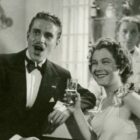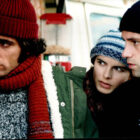An enduring connection with Italian cinema
Rutger Hauer, the iconic Dutch actor known for his captivating performances and distinctive presence on screen, shared a unique and enduring connection with Italian cinema. While Hauer is best remembered for his roles in Hollywood blockbusters and international films, his involvement with Italian cinema is a fascinating aspect of his versatile career.
Rutger Hauer’s journey in the world of Italian cinema began with his early exposure to the country’s rich cinematic heritage. Italy, renowned for producing some of the world’s finest films, had a significant influence on Hauer’s artistic sensibilities. As a young actor, he developed an appreciation for Italian directors such as Federico Fellini, Michelangelo Antonioni, and Sergio Leone, who were instrumental in shaping his approach to acting and storytelling.
Hauer’s admiration for Italian cinema’s emphasis on emotion, visual storytelling, and profound narratives deeply impacted his acting style. As a consequence, this influence would become evident in his performances as he seamlessly integrated elements of Italian cinematic aesthetics into his roles, creating a unique fusion of his Dutch roots and Italian inspiration.
Rutger Hauer’s relationship with Italian cinema extended beyond mere admiration. He actively sought opportunities to collaborate with Italian filmmakers and contribute to the country’s film landscape.
One notable collaboration was his role with Italian actor and director Giancarlo Giannini in “Fathers’ Day” (1997) showcased his versatility and willingness to explore diverse roles. This collaboration not only highlighted Hauer’s acting prowess but also solidified his presence within the realm of Italian cinema.
With Giannini, Hauer worked also on “The Bankers of God” (2002), an Italian drama, directed by Giuseppe Ferrara, that delves into the intricate web of faith, corruption, and power within the Vatican. Hauer’s portrayal of Archbishop Donati, a complex and morally ambiguous character, adds depth and authenticity to the film’s exploration of these themes.
The film centers around the Vatican’s financial dealings, shedding light on the clandestine operations that intertwine faith and money. The film follows the journey of Archbishop Donati (Rutger Hauer), a high-ranking clergyman who finds himself entangled in a web of corruption and power struggles. As he navigates the intricate politics of the Vatican, Donati must reconcile his religious convictions with the morally ambiguous choices he is forced to make.
His performance in “The Bankers of God” contributes significantly to the film’s lasting impact. Moreover, his ability to humanize a character struggling with conflicting forces adds depth to the narrative and enhances its resonance. The film remains a thought-provoking exploration of the intersection of spirituality and worldly influence, made even more compelling by Hauer’s masterful portrayal.
Hauer’s connection with Italian cinema was not limited to his acting roles alone. He actively engaged in cultural exchange and artistic fusion, promoting a dynamic exchange of ideas between Dutch and Italian filmmakers. The actor’s legacy within Italian cinema serves as a testament to the power of cross-cultural artistic exchange. In addition, his collaborations, contributions, and appreciation for Italian culture have enriched his career and contributed to the global tapestry of cinematic excellence.
Overall, Rutger Hauer’s relationship with Italian cinema transcended borders and languages, showcasing the profound impact of artistic fusion and cultural exchange. As a Dutch icon with a deep affinity for Italian cinematic traditions, Hauer’s legacy continues to inspire both actors and audiences, reminding us of the beauty that emerges when diverse artistic influences converge on the silver screen.
Watch his movies and much more on www.movieitalyplus.com
Don’t lose all the iconic clips and trivias from our movies on www.visititalywithmovies.com
Click here to read more articles






